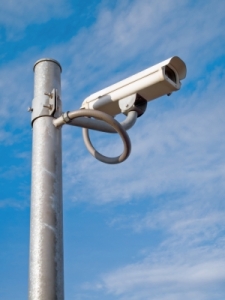
Image courtesy of freedigitalphotos.net/nuttakit
Courts may require alleged domestic abusers to submit to GPS electronic surveillance as a condition of bail depending on the court’s evaluation of conditions outlined in 725 ILCS 5/110-5 (also known as Diane’s Law).
If a person is charged with violating an order of protection, domestic battery, aggravated domestic battery, kidnapping, aggravated kidnapping, unlawful restraint, aggravated unlawful restraint, aggravated unlawful restraining, stalking, aggravating talking, cyber-stalking, harassment by telephone or through electronic communications, or an attempt to commit first degree murder against an intimate partner regardless whether an order of protection has been issued against the person, he or she may be subject to electronic surveillance via GPS monitoring based on the following:
• Did the alleged incident involve harassment?
• Does the person have a history of domestic violence?*
• An evaluation of the mental health of the person
• Did the person violate any order of a court or government agency?
• Has the person been, or is, potentially a threat to any other person?
• Does the person have access to deadly weapons or a history of using deadly weapons?
• Does the person have a history of abusing alcohol or any controlled substance?
• A consideration of the duration of the current incident, and whether the alleged incident involved the use of a weapon, physical injury, sexual assault, strangulation, abuse during the alleged victim’s pregnancy, abuse of pets, or forcible to gain access to the victim, etc.
• Did a separation of the person from the victim or termination of the relations between the person and the alleged victim recently occurred or may be happening now?
• Has the person exhibited obsessive or controlling behaviors toward the alleged victim, including, but not limited to, stalking, surveillance, or isolation of the alleged victim or victim’s’ family or family members?
• Has the person expressed suicidal or homicidal thoughts or ideas?
Based on an evaluation of the above points and the totality of the circumstances, the court may order, as a condition of bail, that the person be placed under electronic surveillance. The State bears a high burden, considering the plethora of aggravating and mitigating circumstances to be considered by the court, to prove the individual should be monitored electronically. If courts across the state decide to impose this requirement routinely, the law might draw criticism from members of the defense bar for infringing on their client’s Fourth Amendment rights. Additionally, because under this law electronic monitoring is a condition of bail, the presumption of innocence supports a limited application of the law. Most importantly, the court must make a written record of its reasons for finding that the person should be subject to electronic communication.
Under section 730 ILCS 5/5-8A-7 of the Unified Code of Corrections, if an individual is placed under electronic surveillance monitoring the “supervising authority shall use the best available GPS technology to track domestic violence offenders. Best available technology must have real-time and interactive capabilities that facilitate the following objectives: (1) immediate notification to the supervising authority of a breach of a court ordered exclusion zone; (2) notification of the breach to the offender; and (3) communication between the supervising authority, law enforcement, and the victim.”
As the determination of whether a judge should require an alleged abuser to submit to electronic surveillance is considered during a court hearing on the amount of bail and conditions of release, defense attorneys should argue at the hearing why, in evaluating the above points, their client is not an appropriate candidate for submission to the GPS surveillance monitoring. Defense attorneys should submit mitigating characteristics to the court based on the above considerations to convince the court GPS monitoring for their client is excessive and inappropriate in the case.
* Domestic violence is defined in the Illinois Domestic Violence Act, 750 ILCS 60/101.
As always, call Laura with any questions! Also, if you would like to learn more about Diane’s law, be sure to check out our previous post.

